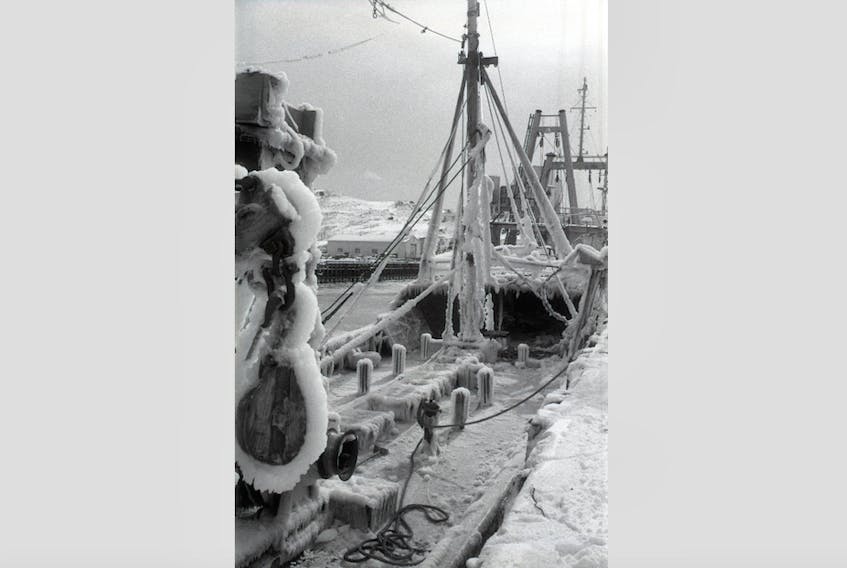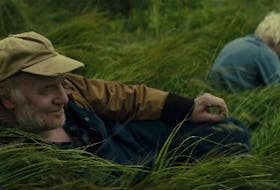Grand Bank, like most other smaller communities in this province, has always depended on the sea for its very existence.
From the days of small schooners and punts — powered only by the wind and sails — to the larger offshore banking schooners and then the wooden and steel trawlers, the men of that town have always looked to the nearby ocean to provide a livelihood.

Although fishing methods have changed, year-round fishing in the North Atlantic continues to be a hazardous occupation. Statistics kept from 1862 up to the present show that some 300 men on vessels sailing out of Grand Bank have lost their lives. It is very doubtful if any other small community of its size has suffered such a staggering loss of life to the sea.
The Bonavista Cold Storage fresh fish plant opened in Grand Bank in the early 1950s, just as the days of the wooden schooner deep-sea salt fishery were coming to an end.
The first two steel side-trawlers purchased by the company came from the United Kingdom and were designed for the North Sea fishery. It didn’t take long before it became painfully obvious that these small 130-135 foot long vessels could not stand up to the ferocious winter storms of the North Atlantic.
Lying low in the water, they were susceptible to “icing up” as gale force winds whipped up heavy seas, sending tons of freezing salt water crashing over the trawlers on the fishing grounds or as they butted their way to and from port.
February was the month that brought the most grief to Grand Bank during the trawler era.
The first tragedy occurred Feb. 9, 1959, when the Blue Wave, captained by Charles Walters, went down with 16 men onboard. Walters had sent out an SOS at 4 a.m. saying that the trawler was over on her “beam’s end.” Just 15 minutes earlier the 34-year old skipper was talking with Capt. Bill Vardy of the Burgeo trawler Triton and told him the Blue Wave was taking on ice. He told Vardy the Wave would have to slow down or stop so that his men could get out on deck to beat off the ice. The Triton steamed to the position Walters gave but because of the blinding snowstorm and high winds nothing was sighted.
It was seven years later, on Feb. 18, 1966, a similar designed trawler from the BCS fleet, the Blue Mist, met the same fate in the Gulf of St. Lawrence; another victim of the savage wintry weather.
The Blue Mist, carrying a crew of 13 men and captained by 29-year old Stuart Price, radioed that they were fighting a severe storm and would probably be delayed in returning to Grand Bank with their 200,000 pounds of fish onboard.
The Blue Mist was never heard from again.
The loss of the 29 men on the two ill-fated trawlers resulted in 98 dependents – widows and children – being left to face a very uncertain future. All but two of the men lived in either Grand Bank or Fortune — 23 were from Grand Bank, four from Fortune and the other two were from Creston.
The two trawlers, in the words of the men who sailed on them, were not good sea boats and even in normal weather conditions at times would “go over on their beam’s end” – lying completely on one side in the sea.
When that happened, the engine would have to be immediately stopped to allow the vessel to right itself.
If you add a savage North Atlantic winter storm, coupled with a build-up of tons of ice, to the mix, it would prove to be disastrous.
Although these tragedies happened six decades ago, emotions and painful memories still resurface every year, especially in February, and the pain and the loss carries into future generations.
Allan Stoodley lives in Grand Bank. He was working at the Bonavista Cold Storage fish plant in 1959 when the Blue Wave was lost and reported on the tragedy for the Evening Telegram. He also covered the sinking of the Blue Mist for the same newspaper.









